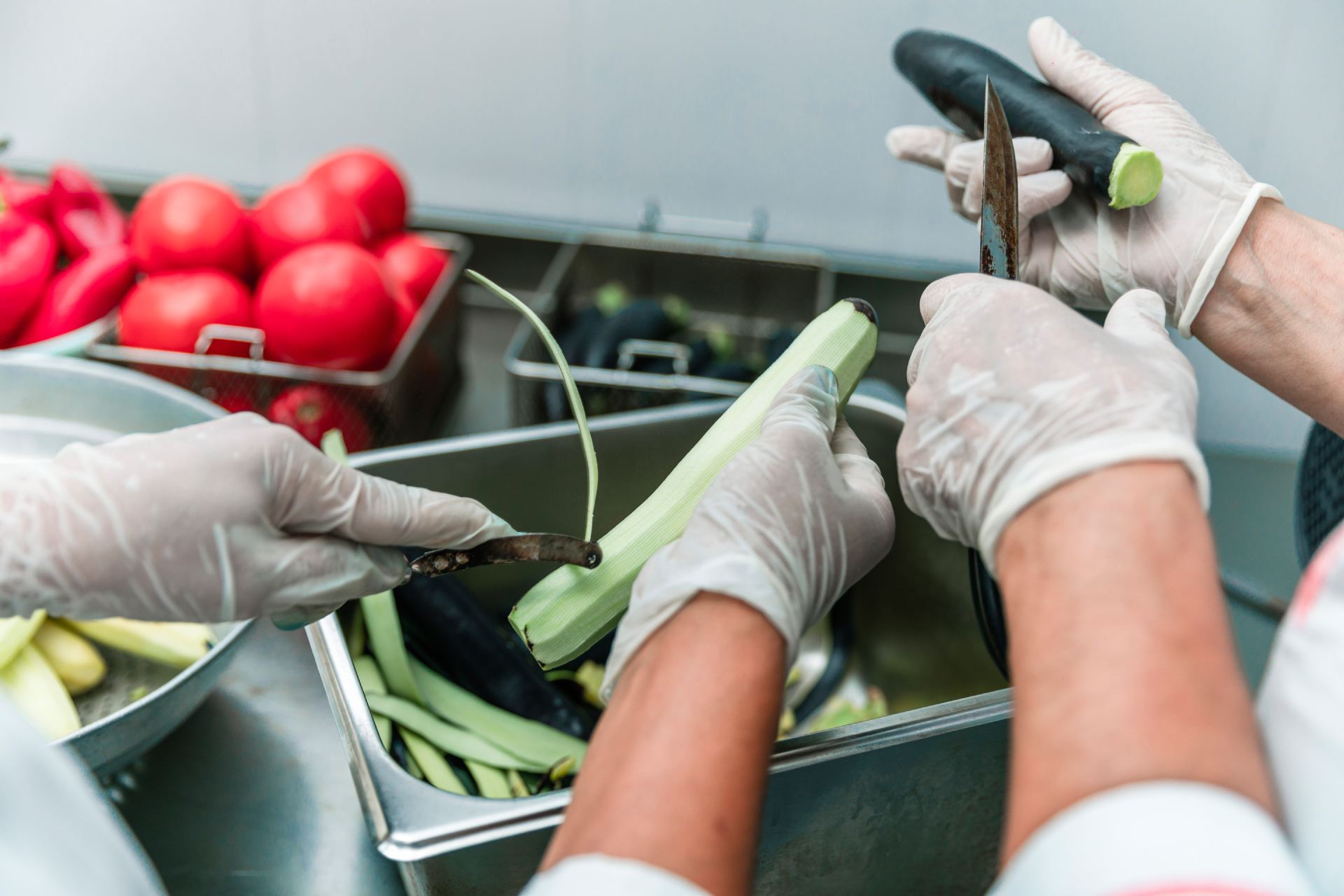Introduction: Why Food Safety Trends Matter More Than Ever
In Singapore, food safety is more than just compliance—it’s the foundation of consumer trust and business success. With stricter regulations and rising customer expectations, F&B businesses must stay updated on the latest food safety trends in Singapore.
Here are the five key trends in 2025 that every restaurant, café, and food business should follow—and how the right training with Xprienz can help you adapt.

1. What Are Digital Food Safety Traceability Systems?
The industry is moving towards digital systems that track food from farm to table. These systems help:
- Monitor ingredient sources in real-time
- Respond quickly to recalls
- Provide transparency for consumers
💡 Connection to Xprienz: While technology is important, staff must still know how to apply hygiene standards consistently. Training through the WSQ Food Hygiene Course ensures your employees understand the basics of safe food handling, even when supported by digital systems.
2. How Does Sustainable Packaging Affect Food Safety?
Customers now expect businesses to balance hygiene with sustainability. In 2025, F&B outlets are adopting:
- Biodegradable or recyclable packaging
- Safe, eco-friendly containers that meet food safety standards
💡 Connection to Xprienz: Switching to new packaging materials requires staff to be aware of correct food handling practices. Through WSQ Food Hygiene Level 1, employees learn how to maintain hygiene standards while using modern packaging solutions.
3. Why Is Continuous Employee Training Mandatory Under the Progressive Wage Model?
The Progressive Wage Model (PWM) requires employees in the F&B industry to upskill regularly. This means ongoing training is no longer optional—it’s mandatory.
- Hygiene refresher courses
- Certification upgrades
- Building a strong food safety culture
💡 Connection to Xprienz: Xprienz offers WSQ Food Hygiene Level 1 & 2 courses that meet regulatory requirements and ensure your team is fully prepared to maintain the highest standards of safety.
4. What Are the Food Safety Risks in Delivery and Takeaway Operations?
With delivery platforms booming, food safety risks extend beyond the kitchen. Businesses must focus on:
- Proper packaging for transport
- Temperature control during delivery
- Hygiene during food handover
💡 Connection to Xprienz: Our courses train employees to handle food safely at every stage—from preparation to delivery—ensuring compliance with Singapore’s food hygiene regulations.
5. How Is AI Reshaping Food Safety in Singapore’s F&B Industry?
Artificial Intelligence is reshaping food safety management:
- Predictive analytics for risk detection
- Sensors to monitor kitchen conditions
- Automated compliance reporting
💡 Connection to Xprienz: While AI provides the data, it takes trained supervisors and managers—often certified through WSQ Food Hygiene Level 2—to implement and oversee these systems effectively.
Conclusion
Food safety in Singapore is evolving quickly, and businesses that stay ahead of these trends will gain a competitive advantage. From digital traceability to continuous employee training, the future of food safety is about combining technology with skilled staff.
👉 Want to keep your business compliant and future-ready?
Explore our WSQ Food Hygiene Courses at Xprienz and equip your team with the knowledge and certifications they need for 2025 and beyond.
Frequently Asked Questions (FAQ)
Q. What are the top food safety trends in Singapore for 2025?
A. The key trends include digital traceability systems, sustainable packaging, continuous employee training under the Progressive Wage Model, safe delivery operations, and the use of AI in food safety management.
Q. Why is continuous food safety training mandatory in Singapore?
A. Under the Progressive Wage Model (PWM), F&B workers are required to attend regular training and certification. This ensures that hygiene standards remain high, and businesses comply with SFA regulations.
Q. How does AI improve food safety in the F&B industry?
A. AI supports food safety through predictive analytics, kitchen monitoring sensors, and automated compliance reporting. These technologies help businesses detect risks early and maintain consistent hygiene standards.
Q. Do delivery and takeaway services need food safety training too?
A. Yes. Food safety risks extend beyond the kitchen. Staff involved in packaging, transporting, and handing over food must follow hygiene practices to prevent contamination during delivery.
Q. How can Xprienz help businesses adapt to 2025 food safety trends?
A. Xprienz provides WSQ Food Hygiene Level 1 and Level 2 courses that equip employees and supervisors with the skills needed to adapt to new technologies, regulations, and best practices in food safety.
